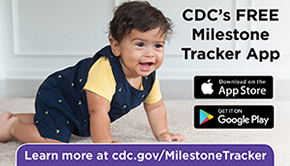Your child at 18 Months
Positive Parenting Tips
Following are some of the things you, as a parent, can do to help your toddler during this time:
- Read to your toddler daily.
- Ask her to find objects for you or name body parts and objects.
- Play matching games with your toddler, like shape sorting and simple puzzles.
- Encourage him to explore and try new things.
- Help to develop your toddler’s language by talking with her and adding to words she starts. For example, if your toddler says “baba”, you can respond, “Yes, you are right―that is a bottle.”
- Encourage your child’s growing independence by letting him help with dressing himself and feeding himself.
- Respond to wanted behaviors more than you punish unwanted behaviors (use only very brief time outs). Always tell or show your child what she should do instead.
- Encourage your toddler’s curiosity and ability to recognize common objects by taking field trips together to the park or going on a bus ride.
Child Safety First
Because your child is moving around more, he will come across more dangers as well. Dangerous situations can happen quickly, so keep a close eye on your child. Here are a few tips to help keep your growing toddler safe:
- Do NOT leave your toddler near or around water (for example, bathtubs, pools, ponds, lakes, whirlpools, or the ocean) without someone watching her. Fence off backyard pools. Drowning is the leading cause of injury and death among this age group.
- Block off stairs with a small gate or fence. Lock doors to dangerous places such as the garage or basement.
- Ensure that your home is toddler proof by placing plug covers on all unused electrical outlets.
- Keep kitchen appliances, irons, and heaters out of reach of your toddler. Turn pot handles toward the back of the stove.
- Keep sharp objects such as scissors, knives, and pens in a safe place.
- Lock up medicines, household cleaners, and poisons.
- Do NOT leave your toddler alone in any vehicle (that means a car, truck, or van) even for a few moments.
- Store any guns in a safe place out of his reach.
- Keep your child’s car seat rear-facing as long as possible. According to the National Highway Traffic Safety Administration it’s the best way to keep her safe. Your child should remain in a rear-facing car seat until she reaches the top height or weight limit allowed by the car seat’s manufacturer. Once your child outgrows the rear-facing car seat, she is ready to travel in a forward-facing car seat with a harness.
Healthy Bodies
- Give your child water and plain milk instead of sugary drinks. After the first year, when your nursing toddler is eating more and different solid foods, breast milk is still an ideal addition to his diet.
- Your toddler might become a very picky and erratic eater. Toddlers need less food because they don’t grow as fast. It’s best not to battle with him over this. Offer a selection of healthy foods and let him choose what she wants. Keep trying new foods; it might take time for him to learn to like them.
- Limit screen time. For children younger than 2 years of age, the AAP recommends that it’s best if toddlers not watch any screen media.
- Your toddler will seem to be moving continually—running, kicking, climbing, or jumping. Let him be active—he’s developing his coordination and becoming strong.
Developmental Milestones
How your child plays, learns, speaks, and acts offers important clues about your child’s development. Developmental milestones are things most children can do by a certain age.
If you have questions or concerns about your child’s development, dial 1-800-505-7000 to speak to a Care Coordinator at Child Development Infoline.
SOURCE: Centers for Disease Control and Prevention
Language & Communication
- Says several single words
- Says and shakes head “no”
- Points to show someone what he wants
Cognitive
- Knows what ordinary things are for; for example, telephone, brush, spoon
- Points to get the attention of others
- Shows interest in a doll or stuffed animal by pretending to feed
- Points to one body part
- Scribbles on his own
- Can follow 1-step verbal commands without any gestures; for example, sits when you say “sit down”
Movement & Physical Development
- Walks alone
- May walk up steps and run
- Pulls toys while walking
- Can help undress herself
- Drinks from a cup Eats with a spoon
Related Programs

Related Resources
- AAP’s- Healthy Children
- Act Early Connecticut
- ADA – The Americans with Disabilities Act
- AFCAMP- Advocacy for Children with Disabilities
- Ages and Stages
- Assistive Technology
- Asthma
- Austism Spectrum Disorders (ASDs)
- Autism Services & Resources Connecticut
- Autism Speaks
- Birth to Five: Watch Me Thrive!
- Born Learning
- CDC Child Development Information
- Childhood Lead Poisoning
- Childhood Obesity
- Choose My Plate
- CT Birth to Three Website
- CT Down Syndrome Congress
- CT Family Support Network
- CT Hands and Voices
- CT Parent Advocacy Center
- CT Parenting
- Divorcing Parents Parenting Education Programs (PEP)
- Ear Infections in Children
- Early Learning and Development Standards
- Early & Periodic Screening, Diagnosis & Treatment Program (EPSDT)
- Effects of Hearing Loss on Development
- Family Support Grant
- Guide By Your Side
- Head Lice
- How to Find Sign Language Instruction Classes in Connecticut
- Important Milestones
- Katie Beckett Waiver
- Kids Health
- Kids Mental Health Info
- Learn the Signs, Act Early
- M-CHAT
- Milestone Tracker Mobile App
- NEAT Marketplace
- PATH Parent-to-Parent Family Voices
- PBS Parents
- Sickle Cell Disease / Sickle Cell Trait
- Vroom
- Zero to Three
See all Resources



